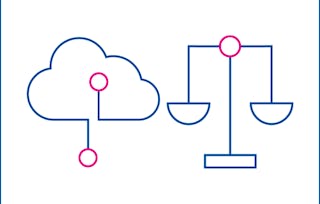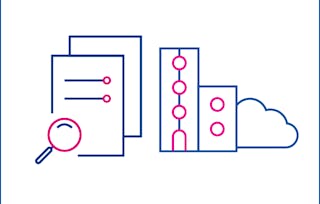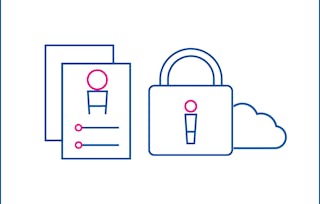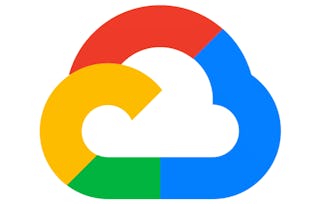Have you ever wondered what’s in the small print of cloud contracts? Or who owns the information you upload to the cloud? And who can access and control it? If so, then this course is for you! You’ll learn to identify the legal risks involved in cloud computing transactions - and to suggest possible solutions.

Cloud Computing Law: Transactions

Cloud Computing Law: Transactions
This course is part of Cloud Computing Law Specialization



Instructors: Christopher Millard
4,977 already enrolled
Included with
100 reviews
Recommended experience
Skills you'll gain
- Data Security
- Contract Negotiation
- Intellectual Property
- Law, Regulation, and Compliance
- Service Level Agreement
- Cloud Computing
- Contract Review
- Legal Risk
- Cloud Services
- Cloud Security
- Cybersecurity
- Skills section collapsed. Showing 10 of 11 skills.
Details to know

Add to your LinkedIn profile
13 assignments
See how employees at top companies are mastering in-demand skills

Build your subject-matter expertise
- Learn new concepts from industry experts
- Gain a foundational understanding of a subject or tool
- Develop job-relevant skills with hands-on projects
- Earn a shareable career certificate

There are 4 modules in this course
This week, we cover the basics of cloud computing. We look at how cloud computing technology works and how it differs from traditional, in-house IT. We explain that cloud is not 'one thing': instead, there are different service types and deployment models, as well as so-called 'layered' services. We then look at the legal implications of different cloud services. Finally, we consider the importance of data location and the relationship between cloud customers and providers. By the end of this week, you will be able to identify the legal and regulatory risks that a potential cloud customer should consider.
What's included
12 videos9 readings3 assignments2 discussion prompts
The relationship between the cloud customer and the provider is governed by contract. Cloud contracts set out the parties' rights and obligations. They also cover issues such as choice of law and forum, liability in case of breach of contract, how changes might be made, and what happens when a contract is terminated. This week, we look at the clauses typically found in standard cloud contracts and what these might mean in practice for both customers and providers. We highlight how these clauses can differ per provider - and how cloud contracts differ from other IT contracts, such as those for outsourcing and IP licensing. By the end of this week, you should describe the terms a cloud customer is likely to find in standard cloud contracts.
What's included
13 videos4 readings3 assignments5 discussion prompts
Standard cloud contracts typically favour the provider. However, large businesses or government departments can sometimes negotiate more favourable terms with cloud providers. This week, we look at the factors that influence whether cloud providers will negotiate terms with customers, as well as the terms customers want to negotiate - and how those negotiations typically develop. By the end of this week, you will be able to describe a cloud customer's prospects for negotiating contract terms with a cloud provider.
What's included
9 videos6 readings3 assignments2 discussion prompts
This week, we look at questions of 'ownership' of information stored, created, processed, and distributed in cloud environments. We examine the information flows between cloud providers and their customers and distinguish between content that is stored and processed by users, from information generated by cloud providers. We'll see that, although intellectual property law may determine ownership rights in relevant information, the law does not necessarily achieve what parties to cloud computing transactions expect or need. Moreover, in practice, ownership may be less important than control over, and access to, information. By the end of this week, you will be able to describe how a cloud customer can protect and control information in the cloud.
What's included
12 videos7 readings4 assignments
Earn a career certificate
Add this credential to your LinkedIn profile, resume, or CV. Share it on social media and in your performance review.
Instructors

Offered by
Explore more from Law
 Status: Free Trial
Status: Free TrialQueen Mary University of London
 Status: Free Trial
Status: Free TrialQueen Mary University of London
 Status: Free Trial
Status: Free TrialQueen Mary University of London
Why people choose Coursera for their career

Felipe M.

Jennifer J.

Larry W.

Chaitanya A.
Learner reviews
- 5 stars
92%
- 4 stars
7%
- 3 stars
1%
- 2 stars
0%
- 1 star
0%
Showing 3 of 100
Reviewed on May 6, 2024
Excellent delivery of the subject matter. Highly recommended.
Reviewed on Mar 29, 2025
Very well explained topic and engaging lectures by lecturers. For me, as a lawyer, a nice change from courses from Google, IBM or AWS.
Reviewed on Jan 3, 2023
Excellent course! The MOOC provides current insightful information about the regulatory dynamics of cloud computing services. I highly recommend it!

Open new doors with Coursera Plus
Unlimited access to 10,000+ world-class courses, hands-on projects, and job-ready certificate programs - all included in your subscription
Advance your career with an online degree
Earn a degree from world-class universities - 100% online
Join over 3,400 global companies that choose Coursera for Business
Upskill your employees to excel in the digital economy
Frequently asked questions
To access the course materials, assignments and to earn a Certificate, you will need to purchase the Certificate experience when you enroll in a course. You can try a Free Trial instead, or apply for Financial Aid. The course may offer 'Full Course, No Certificate' instead. This option lets you see all course materials, submit required assessments, and get a final grade. This also means that you will not be able to purchase a Certificate experience.
When you enroll in the course, you get access to all of the courses in the Specialization, and you earn a certificate when you complete the work. Your electronic Certificate will be added to your Accomplishments page - from there, you can print your Certificate or add it to your LinkedIn profile.
Yes. In select learning programs, you can apply for financial aid or a scholarship if you can’t afford the enrollment fee. If fin aid or scholarship is available for your learning program selection, you’ll find a link to apply on the description page.
More questions
Financial aid available,


